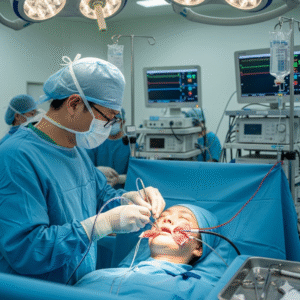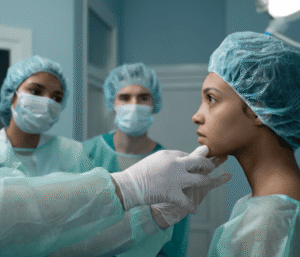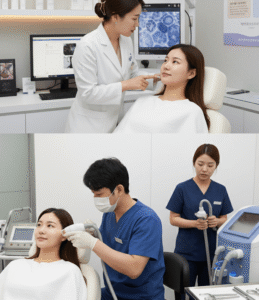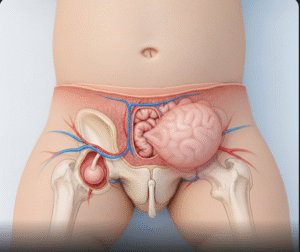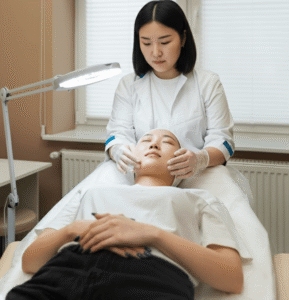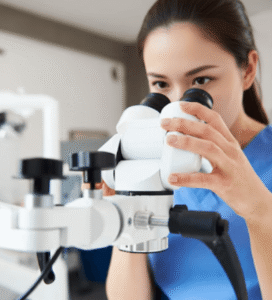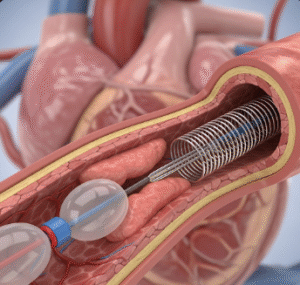Overview
Deafness, or significant hearing loss, is a condition that affects a person’s ability to perceive sounds and communicate effectively. In Korea, deafness can result from genetic factors, infections, age-related hearing loss, or environmental exposure to loud noises. Specialized audiology and ENT centers, such as Seoul National University Hospital, Asan Medical Center, and Samsung Medical Center, provide early diagnosis, hearing rehabilitation, and advanced treatments like cochlear implants to improve quality of life.
What is Deafness?
Deafness is a partial or complete loss of hearing that can occur in one or both ears. It may be congenital (present at birth) or acquired later in life. Deafness can be classified as:
- Conductive hearing loss – caused by problems in the outer or middle ear
- Sensorineural hearing loss – caused by inner ear or nerve damage
- Mixed hearing loss – combination of conductive and sensorineural factors
It can affect people of all ages, from infants to older adults, and significantly impact communication, social interaction, and education.
Symptoms
- Difficulty understanding speech, especially in noisy environments
- Frequently asking others to repeat themselves
- Turning one ear toward the speaker to hear better
- Withdrawal from conversations or social interactions
- Ringing in the ears (tinnitus) in some cases
- Speech and language delays in children
Causes
- Genetic mutations leading to congenital deafness
- Chronic ear infections or untreated otitis media
- Noise-induced hearing loss from prolonged exposure to loud sounds
- Aging (presbycusis)
- Ototoxic medications (certain antibiotics, chemotherapy drugs)
- Trauma to the ear or head
- Viral infections such as measles, mumps, or meningitis
Risk Factors
- Family history of hearing loss or congenital deafness
- Frequent exposure to loud noises without protection
- Premature birth or low birth weight
- Chronic ear infections
- Use of ototoxic medications
- Age over 60 years for age-related hearing loss
Complications
- Communication difficulties and social isolation
- Delayed speech and language development in children
- Cognitive decline and increased risk of dementia in adults
- Emotional distress, depression, or anxiety
- Educational or occupational challenges if untreated
Prevention
- Protecting ears from loud noises with earplugs or earmuffs
- Early treatment of ear infections
- Avoiding ototoxic medications unless necessary
- Regular hearing screenings, especially for infants and older adults
- Prenatal care to prevent congenital hearing loss caused by infections
Treatment Options in Korea
Treatment depends on the type, cause, and severity of deafness, focusing on restoring hearing and improving communication.
- Diagnosis
- Comprehensive audiometry tests for hearing thresholds
- Tympanometry to evaluate middle ear function
- Otoacoustic emissions (OAE) for newborn screening
- Imaging (CT or MRI) for structural ear abnormalities
- Genetic testing for congenital or hereditary hearing loss
- Medical Treatments
- Antibiotics or surgery for chronic ear infections
- Medications for sudden sensorineural hearing loss (e.g., corticosteroids)
- Surgical Treatments
- Cochlear implants for severe sensorineural hearing loss
- Bone-anchored hearing aids (BAHA) for conductive or mixed hearing loss
- Tympanoplasty or stapedectomy for middle ear abnormalities
- Rehabilitation & Supportive Care
- Hearing aids for mild to moderate hearing loss
- Speech therapy and auditory training for children and adults
- Communication strategies and assistive listening devices
- Counseling and support groups to improve social adaptation
- Specialized Hospitals in Korea
- Seoul National University Hospital – Advanced audiology and cochlear implant programs
- Asan Medical Center – ENT and hearing rehabilitation services
- Samsung Medical Center – Multidisciplinary management for congenital and acquired deafness
- Local hearing centers and clinics for ongoing audiological care
- Long-Term Follow-Up
- Periodic hearing assessments to monitor changes
- Adjustment of hearing aids or implants as needed
- Support for speech and language development in children
- Counseling for patients and families to manage social and emotional challenges




